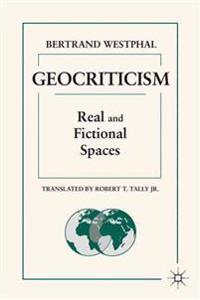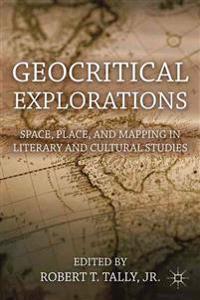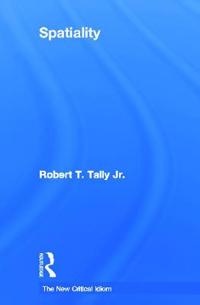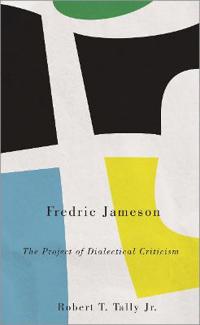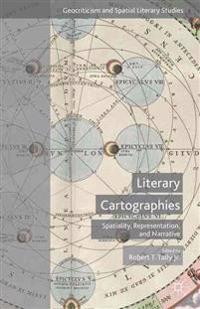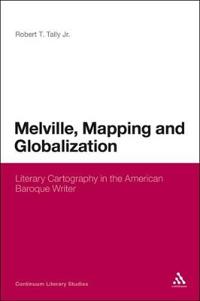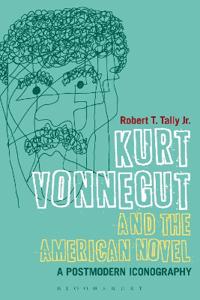Geocriticism (Inbunden)
avBertrand Westphal, Robert T. Tally, Bertrand Westphal
ISBN: 9780230110212 - UTGIVEN: 2011-04Although time traditionally dominated the perspectives of the humanities and social sciences, space has reasserted itself in the contexts of postmodernity, postcolonialism, and globalization. Today, a number of emerging critical discourses connect geography, architecture, and environmental studies, [...]
Geocritical Explorations (Inbunden)
avRobert T. Tally
ISBN: 9780230120808 - UTGIVEN: 2011-10In recent years the spatial turn in literary and cultural studies has opened up new ways of looking at the interactions among writers, readers, texts, and places. Geocriticism offers a timely new approach, and Geocritical Explorations presents an array of concrete examples and readings, which also r[...]
Utopia In The Age Of Globalization (Inbunden)
avRobert T. Tally Jr.
ISBN: 9780230391895 - UTGIVEN: 2013-02-26The idea of "Utopia" has made a comeback in the age of globalization, and the bewildering technological shifts and economic uncertainties of the present era call for novel forms of utopia. Tally argues that a new form of utopian discourse is needed for understanding, and moving beyond, the current w[...]
Spatiality (Inbunden)
avJr. Robert T. Tally
ISBN: 9780415664394 - UTGIVEN: 201209Spatiality has risen to become a key concept in literary and cultural studies, with critical focus on the 'spatial turn' presenting a new approach to the traditional literary analyses of time and history. Robert T. Tally Jr. explores differing aspects of the spatial in literary studies today, provid[...]
Spatiality (Häftad)
avJr. Robert T. Tally
ISBN: 9780415664400 - UTGIVEN: 201209Spatiality has risen to become a key concept in literary and cultural studies, with critical focus on the 'spatial turn' presenting a new approach to the traditional literary analyses of time and history. Robert T. Tally Jr. explores differing aspects of the spatial in literary studies today, provid[...]
Fredric Jameson (Pocket)
avRobert T. Tally
ISBN: 9780745332109 - UTGIVEN: 2014-06Fredric Jameson is the most important Marxist critic in the world today. While consistently operating at the cutting edge of literary and cultural studies, Jameson has remained committed to seemingly old-fashioned philosophical discourses, most notably dialectical criticism and utopian thought. In F[...]
Fredric Jameson (Inbunden)
avRobert T. Tally
ISBN: 9780745332116 - UTGIVEN: 2014-06Fredric Jameson is the most important Marxist critic in the world today. While consistently operating at the cutting edge of literary and cultural studies, Jameson has remained committed to seemingly old-fashioned philosophical discourses, most notably dialectical criticism and utopian thought. In F[...]
Literary Cartographies (Inbunden)
avDr. Robert T. Tally
ISBN: 9781137456496 - UTGIVEN: 2014-09Literary Cartographies: Spatiality, Representation, and Narrative addresses key aspects of narrative mapping while arguing for the significance of spatiality in comparative literary studies. Literary Cartographies surveys a broad expanse of literary historical territories, including romance and real[...]
Geocriticism (Pocket)
avBertrand Westphal, Robert T. Tally, Bertrand Westphal
ISBN: 9781137479945 - UTGIVEN: 2015-01Although time traditionally dominated the perspectives of the humanities and social sciences, space has reasserted itself in the contexts of postmodernity, postcolonialism, and globalization. Today, a number of emerging critical discourses connect geography, architecture, and environmental studies, [...]
Melville, Mapping and Globalization (Pocket)
avRobert T. Tally
ISBN: 9781441163219 - UTGIVEN: 2011-12In Melville, Mapping and Globalization, Robert Tally argues that Melville does not belong in the tradition of the American Renaissance, but rather creates a baroque literary cartography, artistically engaging with spaces beyond the national model. At a time of intense national consolidation and cul[...]
Kurt Vonnegut and the American Novel (Häftad)
avJr. Robert T. Tally
ISBN: 9781472507006 - UTGIVEN: 201304The novels of Kurt Vonnegut depict a profoundly absurd and distinctly postmodern world. But in this critical study, Robert Tally argues that Vonnegut himself is actually a modernist, who is less interested in indulging in the free play of signifiers than in attempting to construct a model that could[...]
Poe and the Subversion of American Literature: Satire, Fantasy, Critique (Inbunden)
avJr. Dr. Robert T. Tally
ISBN: 9781623564278 - UTGIVEN: 2014-03-13

